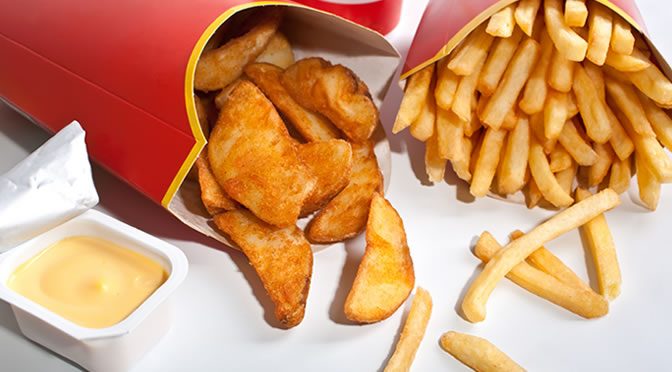Ready food packaging contains potentially harmful chemicals which can contaminate food and cause health issues, a study reveals.
If cutting down fast foods for the sake of maintaining a healthy weight is not a good enough reason to resist fast foods, here is another.
Researchers have found fluorinated compounds called per- and polyfluoroalkyl substances (PFASs) in more than 400 samples of packaging materials.
Tested samples included pastry bags, french fry containers, beverage cups, hamburger and sandwich wrappers.
The study found that 20% of paperboard, 38% of burger and sandwich wrappers, 56% of dessert and bread wrappers contained these chemicals.
Long-chain PFASs are used in many manufacturing and industrial productions such as waterproof or stain-resistant packaging, fire fighting materials and nonstick cookware.
Studies in the past have suggested an association between PFASs and decreased fertility, increased cancer risk and developmental problems in children.
PFASs can migrate and contaminate the food and after consumption our body can’t get rid of them easily so they will accumulate in the body for many years.
Professor Graham Peaslee, a senior author of the study, said:
“These chemicals don’t biodegrade.
They don’t naturally degrade.
They persist in the environment for a very long time.”
The toxic build up of these chemicals has been linked to several health problems such as thyroid disease, birth weight and immunotoxicity in children, kidney and testicular cancers as well.
Professor Peaslee said:
“This is a really persistent chemical.
It gets in the bloodstream, it stays there and accumulates.
There are diseases that correlate to it, so we really don’t want this class of chemicals out there.”
According to National Center for Health Statistics, one-third of U.S. children consume fast food every day.
The damage caused by these chemicals can’t be ignored when considering the role of fast food in the American diet.
In this study samples were collected from 27 fast food restaurant chains including Starbucks, Burger King, McDonald’s, Jimmy Johns, Chipotle, Panera and Chick-Fil-A in the U.S.
The study was published in the journal Environmental Science & Technology (Schaider et al., 2017).
Packaging image from Shutterstock
